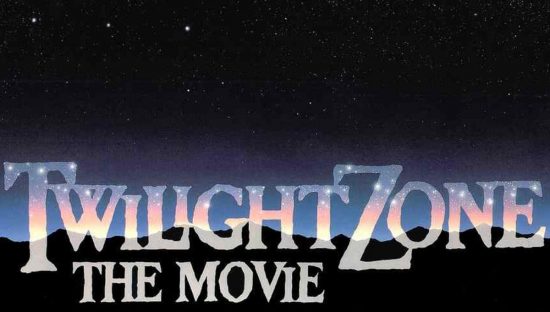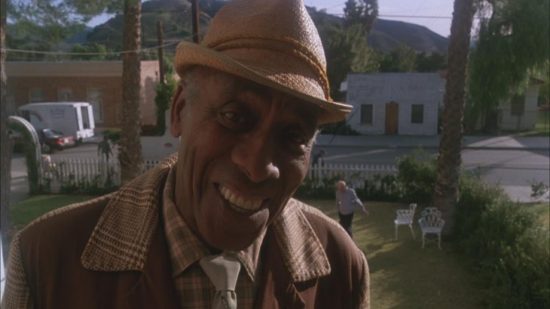SpielBLOG – Twilight Zone: The Movie – A Steven Spielberg Retrospective
In the 1980s, the TV spin-off movie was relatively rare. Star Trek: The Motion Picture and its sequel The Wrath of Khan had been moderately successful but in general TV stayed where it was and usually it was the small screen that either officially or unofficially found its inspiration in big screen success.
Also, the idea of a portmanteau film – that is the anthology of several separate stories – likewise wasn’t hugely popular. Grand Hotel had launched the genre in 1932 but with the exception of the British horror film Dead of Night, there were few glowing examples. So a TV spin-off and a portmanteau film? It sounds like a bad idea, right? Well, things were going to get much, much worse.
On July 23, 1982, at around 2:30 a.m., actor Vic Morrow and child actors Myca Dinh Le (age 7) and Renee Shin-Yi Chen (age 6) were killed when a helicopter, having been hit by a special effects explosion crashed into them as they crossed a lake. The accident was preventable and although no criminal liability was ever legally established, no one came out of the affair with much honour. John Landis had hired his child actors paying them under the table and getting them to hide when a safety inspector came around so he could circumvent a law that prevented child actors working at night. He also didn’t inform their parents of the true nature of the stunt. They should never have been working that late at night as well. Morrow had voiced doubts about the stunt work he was being asked to perform. In fact, while filming Dirty Mary Crazy Larry in 1974, Morrow had been extremely nervous of multiple helicopter scenes, even confessing to costars that he feared he would die in a helicopter crash. When someone on set brought up safety, Landis joked ‘maybe we’ll lose a helicopter.’
None of this was Steven Spielberg’s direct fault, although as a producer of the whole film some responsibility does belong to him and his decision to continue with the project means that he obviously supported Landis. The second unit director of Landis’ segment had his name pulled off the credits.
Spielberg changed his choice of episode which was yet to be filmed when the accident occurred. ‘Kick the Can’ is a saccharine tale, with none of the darkness of the other episodes. Scatman Crothers – Chef from The Shining – plays Mr. Bloom a dreamy optimistic old man who on arriving in a retirement home tries to perk up the other inhabitants with his tale of a childhood game: kick the can. He plans to play the game again with them that night. When all but one join him, they are magically transformed into children once more and, delighted, climb trees, dance and pretend to be Douglas Fairbanks Jr. as they once had as children.
But soon they worry about the consequences of their wishes coming true and decide to return to old age, refreshed and rejuvenated by the glimpse they have had of youth. All except one again. The boy – like Peter Pan – wants to be young forever.
As a TV episode, ‘Kick the Can’ would hardly pass muster. It’s more Waltons than Twilight Zone. Obviously, Spielberg enjoys working with older actors. As an upcoming TV director, he was proud of being able to coax a performance out of Joan Crawford, adeptly handling the aging diva. Sometimes he appears to be collecting old performers, with the enthusiast of a card collector.
But there’s very little to recommend the segment. The episode is bathed in a golden light which literally suggests autumn but also Jurassic amber or, if I was being really cruel, sunshine through urine. The story is trite, corny and predictable; the characters no more than broad types at the service of the plot.
Joe Dante’s next episode is immediately more interesting and George Miller’s recreation of ‘Terror at 20,000 Feet’ is miles ahead – or above – with a terrific turn by John Lithgow and the only episode which justifies the time and effort (but not the deaths, obviously).
Spielberg will return to more solid ground for his next film.
Having despised the idea of sequels, following both Jaws and ET, and perhaps chastened by the bruising experience of Twilight Zone, Spielberg was finally ready to take a double dip and film a follow-up.











